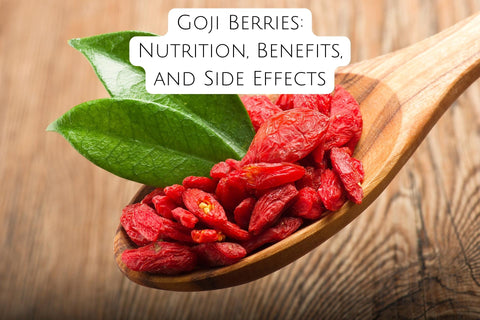Broccoli has been a billion-dollar vegetable for several years. Broccoli is a type of vegetable that is part of the cruciferous family, along with cauliflower and cabbage. It has a green, tree-like appearance and is often eaten raw or cooked. It is a nutritious food that is high in vitamins and minerals, including vitamin C, vitamin K, and folate. Additionally, broccoli is a good source of fiber and antioxidants, which may offer health benefits such as improved digestion and a reduced risk of certain diseases. It has been found growing in many parts of the world and it has a variety of uses aside from containing just raw veggies.
Properties of Broccoli: 
The consumption of Broccoli has many properties which may be listed below is the standard scientific literature used.
- Anti-inflammatory
- Antioxidant
- Immunity booster
- Cardio protective
- Anti-ageing
Potential Uses of Broccoli for Overall Health:
The benefits of broccoli production involve freshness, nutritional value, and versatility. While the full list of potential benefits is not possible to publish at this time (only minor variations are likely) it cannot be ignored that broccoli is a rich source of various beneficial compounds.
-
Broccoli for cancer

Broccoli is a type of cruciferous vegetable that is often touted for its potential health benefits, including its potential role in cancer prevention. Some studies have suggested that broccoli and other cruciferous vegetables may help reduce the risk of certain types of cancer, such as breast, colon, and prostate cancer.
It is important to note that while some studies have suggested a potential link between broccoli consumption and a reduced risk of cancer, more research is needed to confirm these findings and to determine the optimal dosage and duration of broccoli consumption for cancer prevention. It is also important to note that a healthy diet and lifestyle, including a varied diet that includes a wide range of fruits and vegetables, is generally recommended for cancer prevention.
-
Broccoli for fatty liver

Broccoli can be used to fight fatty liver disease in people. Broccoli is considered beneficial for liver health due to its high nutrient content and antioxidant properties. The fiber in broccoli may help improve liver function and prevent fat buildup in the liver. Additionally, its rich vitamins, minerals, and phytochemicals can help protect the liver from oxidative damage and reduce inflammation. However, it is important to maintain a balanced diet and consult a healthcare professional for personalized advice on managing fatty liver.
-
Broccoli on osteoarthritis

Osteoarthritis is a degenerative joint disease that is characterized by the breakdown of the cartilage that cushions and protects the joints. Broccoli contains antioxidants, vitamins and minerals that can help reduce inflammation in the body. These nutrients can also help in maintaining healthy joints and bones, which can be beneficial for individuals with osteoarthritis. Broccoli is also a good source of calcium, which can help maintain strong bones and prevent osteoporosis. Eating a diet rich in broccoli and other nutrient-dense foods can help reduce the risk of developing osteoarthritis and improve overall joint health.
While there is no cure for osteoarthritis, there are several treatments that can help manage the symptoms and slow the progression of the disease. These treatments include medications, physical therapy, and lifestyle changes, such as maintaining a healthy weight and getting regular exercise.
-
Broccoli for Alzheimer’s disease

There is some evidence to suggest that broccoli and other cruciferous vegetables may have potential benefits for people with Alzheimer's disease or other forms of dementia. For example, some studies have found that people who consume a diet high in cruciferous vegetables, including broccoli, have a lower risk of developing Alzheimer's disease.
One possible explanation for this association is that broccoli and other cruciferous vegetables are rich in antioxidants and other compounds that may help protect against oxidative stress and inflammation, both of which are thought to play a role in the development and progression of Alzheimer's disease. In addition, broccoli and other cruciferous vegetables are a good source of vitamin K, which has been shown to improve cognitive function in some studies.
-
Broccoli for Gastrointestinal health

Broccoli and other cruciferous vegetables are a good source of dietary fiber, which is important for maintaining gastrointestinal health. Dietary fiber helps to bulk up the stools and makes them easier to pass through the intestines, which can help prevent constipation and other digestive issues. In addition, dietary fiber can help to feed the beneficial bacteria that live in the gut, which may have several health benefits, including supporting the immune system and improving digestion.
Broccoli and other cruciferous vegetables are also a good source of antioxidants and other compounds that may have several potential health benefits, including reducing inflammation and protecting against oxidative stress. These effects may help to support gastrointestinal health by reducing the risk of inflammatory conditions such as inflammatory bowel disease (IBD) and helping to prevent the development of gastrointestinal cancers.
Other potential uses of broccoli 
In addition to the potential uses of broccoli that have been mentioned already, broccoli and other cruciferous vegetables may have several other potential health benefits. Some studies have suggested that broccoli and other cruciferous vegetables may have the following potential uses:
-
Cardiovascular health:
Some studies have found that people who consume a diet high in cruciferous vegetables, including broccoli, have a lower risk of developing cardiovascular disease. This may be due to the antioxidants and other compounds found in these vegetables, which may help to reduce inflammation. -
Diabetes management:
Some studies have found that people who consume a diet high in cruciferous vegetables, including broccoli, have a lower risk of developing type 2 diabetes. This may be due to the fiber, antioxidants, and other compounds found in these vegetables, which may help to regulate blood sugar levels and improve insulin sensitivity. -
Weight management:
Broccoli and other cruciferous vegetables are low in calories and high in fiber, which may make them helpful for weight management. Including these vegetables in your diet may help you feel full and satisfied, which may help you eat fewer calories overall. -
Eye health:
Broccoli and other cruciferous vegetables are a good source of vitamin A and other nutrients that are important for eye health, such as lutein and zeaxanthin. These nutrients may help to reduce the risk of age-related macular degeneration and other forms of vision loss.
It is important to note that more research is needed to fully understand the potential benefits of broccoli and other foods for these and other health conditions. While adding broccoli and other healthy foods to your diet may be beneficial, it is important to speak with a healthcare provider before making any changes to your diet or treatment plan.
Side Effects of Broccoli
Broccoli is generally considered to be a safe and healthy food that can be included as part of a varied diet. Broccoli is considered safe when consumed in moderation as part of a balanced diet. However, some people may experience digestive problems such as bloating, gas, and upset stomach after consuming large amounts of broccoli. Additionally, broccoli is part of the cruciferous vegetable family, which can interfere with thyroid function if consumed in excessive amounts by people with a history of thyroid problems.
It is important to note that these are potential side effects and that they are not common. In general, broccoli and other cruciferous vegetables are healthy and nutritious foods that can be enjoyed as part of a varied diet.




Comments (0)
There are no comments for this article. Be the first one to leave a message!